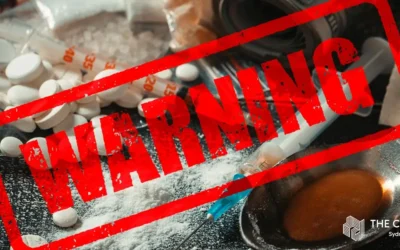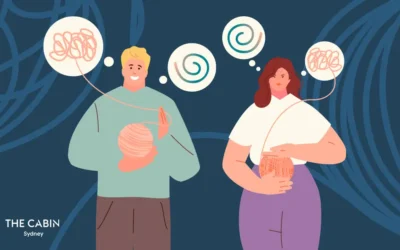Overcoming alcohol addiction is no easy task, especially in a culture that considers binge drinking to be a normal activity. However, from a decreased risk of developing cancer and hangover-free mornings to an improvement in mind, body, and relationships, the benefits of ridding your life of alcohol are bountiful…

Our culture is dominated by a casual attitude toward drinking, to state the least. With approximately 15% of the Australian population drinking at risky levels, it is obvious that many people are not aware of the recommended daily limits on alcohol consumption or what the long-term effects could be, including alcohol addiction.
Stop Drinking and Start Looking Better
Alcohol causes your cells and other bodily systems to undergo physiological changes, one of which is that it becomes more difficult for your body to absorb vitamins and minerals such as vitamin C, vitamin B12, thiamine and folic acid. Alcohol consumption also decreases your metabolism, while simultaneously increasing your intake of empty calories and your cravings for late-night snacks and junk food. This is a recipe for disaster for those who have weight loss goals.
For those who do physical fitness, consuming alcohol regularly affects the body in a way that makes activities like running and coordination more difficult. Quitting drinking is beneficial because workout-worn muscles recover faster. You will also have more endurance and be able to convert carbs into usable energy more easily, all making for more satisfying exercise sessions.
Your skin will reward you for quitting alcohol. Consuming alcohol forces the kidneys, as they break down and process the alcohol, to work double-time. This requires the usage of excess water in your system, which leaves your organs, including your skin, dehydrated. Skin that is dry from the inside wrinkles more quickly and can even take on a greyish hue. The depletion of fluids and electrolytes can also make your face puffy and your body bloated. Dehydration also enlarges blood vessels in the skin, causing it to look red and flushed. Studies have shown that frequent alcohol consumption can exacerbate dry skin conditions such as psoriasis and facial eczema.
Your skin will show near immediate improvements upon quitting alcohol. In just a few weeks, your skin will look fresher, the redness will fade, your skin tone will be more even, and your eyes will be brighter as blood vessels constrict to their normal size.
Many people believe alcohol to be a sleep aid (hence the term “nightcap”), but the effect that alcohol has on sleep quality is quite the opposite. Alcohol may initially cause you to fall asleep more quickly, but it diminishes REM sleep, which is the restorative stage of the sleep cycle.
London Sleep Centre director and researcher, Irshaad Ebrahim, says that “Alcohol also suppresses breathing and can precipitate sleep apnea (i.e. pauses in breathing that happen throughout the night).” Quitting alcohol will result in you sleeping more restfully, and you will awaken rejuvenated and have more energy throughout the day.
Quit Alcohol to Boost your Efficiency and Your Mood
Alcohol also affects your cognitive functions and mood, making it more difficult for your brain to do its job. Drinking can have residual effects on cognition even when you are not drunk. It can cause memory loss, confusion, and even brain injury or impaired development. Alcohol increases the risk of mental illness, or it worsens symptoms for those who already have it. Drinking also accelerates brain shrinkage, which can lead to dementia later in life.
Emotions tend to be more extreme while you are inebriated, but drinking in general can cause depression over time. This can dramatically exacerbate pre-existing emotional management issues, affecting relationships and family life. Handling emotional challenges without alcohol means you will develop the skills necessary to do so without that familiar crutch, and that there will likely be fewer emotional episodes to begin with.
Choosing an alcohol-free life means choosing one of clear-mindedness, emotional stability and less drama.
Lead an Alcohol-free Life for a Healthier You
Alcohol is toxic for your body. The International Agency for Research on Cancer considers it a Group 1 carcinogen, their highest-level ranking of substances that are carcinogenic to humans. It is not just the alcohol that is poisonous. The additives that are used for the processing of beer, wine and spirits are also harmful. Contaminants and toxins found in alcoholic beverages are nitrosamines, mycotoxins, ethyl carbamate, pesticides, thermal processing contaminants, benzene, and inorganic contaminants such as lead, cadmium, arsenic, copper, chromium, inorganic anions, and organometals.
Alcohol is a major cause of a large array of illnesses including cancer, dementia, heart disease, kidney disease and stroke. Quitting alcohol improves your immunity, restores your nervous system functioning and blood sugar balance, and decreases your risk for type 2 diabetes.
After a year of not consuming alcohol, you will likely have improvements in cholesterol levels, insulin resistance and even in markers of cancer, says Sydney-based dietician and nutritionist, Rebecca Gawthorne. “Your blood pressure can start to drop in the first two to four weeks after quitting alcohol, which can in turn help reduce the risk of heart problems and stroke… Your liver can start to regenerate and your pancreas and kidney function will start to improve as well.”
Empower Yourself by Giving Up Booze
If you have been drinking regularly over a long period of time, it can be difficult to imagine life without alcohol, but quitting also has the immediate benefit of self-empowerment. Making the decision to just say “no thanks” to booze is a powerful action, and choosing a recovery treatment programme to help you do so significantly improves your chances of success.
The early stages of this new life without alcohol are an amazing opportunity to redefine coping mechanisms, gain a new perspective on relationships, and start cultivating new habits and a life for yourself that is happy, healthy and rewarding. For more inspiration, take a look at what these seven drinkers in recovery have to say about their experiences related to abstaining from alcohol use and how their lives have changed for the better.
If your drinking habits are impacting your life in a negative manner, and you simply cannot quit despite your desire to do so, acknowledging the need for help is the first step towards recovery. At The Cabin Sydney, we offer discreet outpatient help for alcohol and other addictions. Our trained, licensed, and experienced addition treatment counsellors can treat both adults and teens. Contact us today for an initial consultation.


